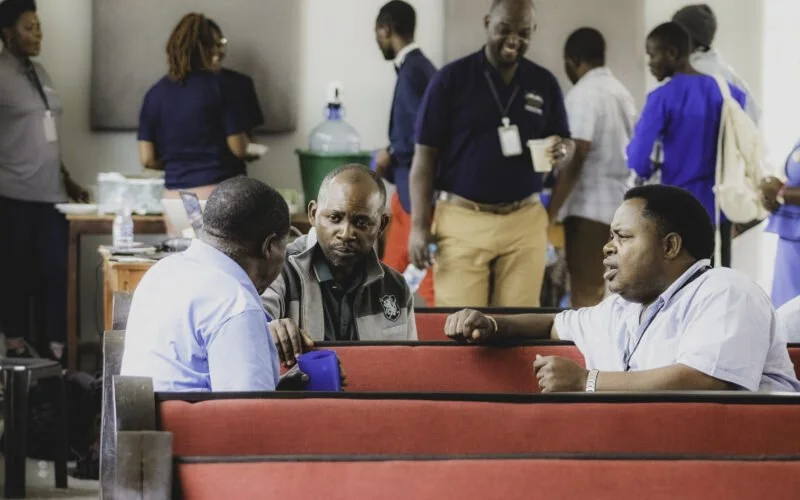A Need for a Nation
Last November, Central Africa Preaching Academy (CAPA) had just finished its Expositor’s Conference. As the professors were wrapping up, a pastor named Kennedy came to them with a need and an opportunity—the local pastors and men of his community needed to hear the teaching from the conference.
But there was a catch.
All the conference content needed to be taught in Chichewa, not English.
A Pastor in Malawi
As a young man, Kennedy Kwenda did not interpret the Bible correctly.
In Malawi, it is common to hear God’s word misinterpreted. The wrong applications formed from a single verse in scripture can lead many to a misunderstanding of the Gospel. These wrong teachings can become the “truth” to the people. And when faithful men then preach the truth from Scripture, it is often difficult for the listener—and the preacher is seen as the false teacher.
Out of a desire to learn how to properly understand God’s word—and teach it correctly to Christ’s church—Kennedy sought instruction from CAPA.
Since graduating from CAPA, Pastor Kennedy has been shepherding a church in Kasungu—around two hours north of Lilongwe in Central Malawi. For years, he stayed in touch with CAPA, inviting them to Shalom Christian Church to do a few one-day pastoral workshops for the men of the congregation.
These remote, one-day workshops have opened the door for more training, but something else was needed.
It’s difficult for one who has believed a misrepresentation of the Bible to be convinced to travel hours for training at the CAPA campus. Though the men were responsive to the truth, it is hard for them to see the need for true pastoral training. Pastor Kennedy saw himself in these men, in how much they didn’t yet understand. He shares, “You know how far you’re lost when you start the journey back.”
He knew they needed more.
Traveling to Kasungu
After hearing Pastor Kennedy’s request to come to Kasungu, the professors at CAPA immediately got to work.
All the one-day workshops that CAPA had done in Kasungu had been in English. However, as Chichewa is the national language of Malawi, most of the people speak Chichewa. A challenge they faced is that Chichewa is not a vocabulary-rich language—words like “justification” and “propitiation” do not have equivalents. Teaching on a reformed view of salvation and hermeneutics would prove challenging.
CAPA reached out to a likeminded ministry for assistance in training, something they had expertise in. Eager to help, the men gave them their wisdom in this type of training, while CAPA faculty worked to translate the conference material into Chichewa for the pastors in Kasungu.
The faculty of CAPA went to Kasungu, ready and equipped to teach the TULIP Conference in the local language.

